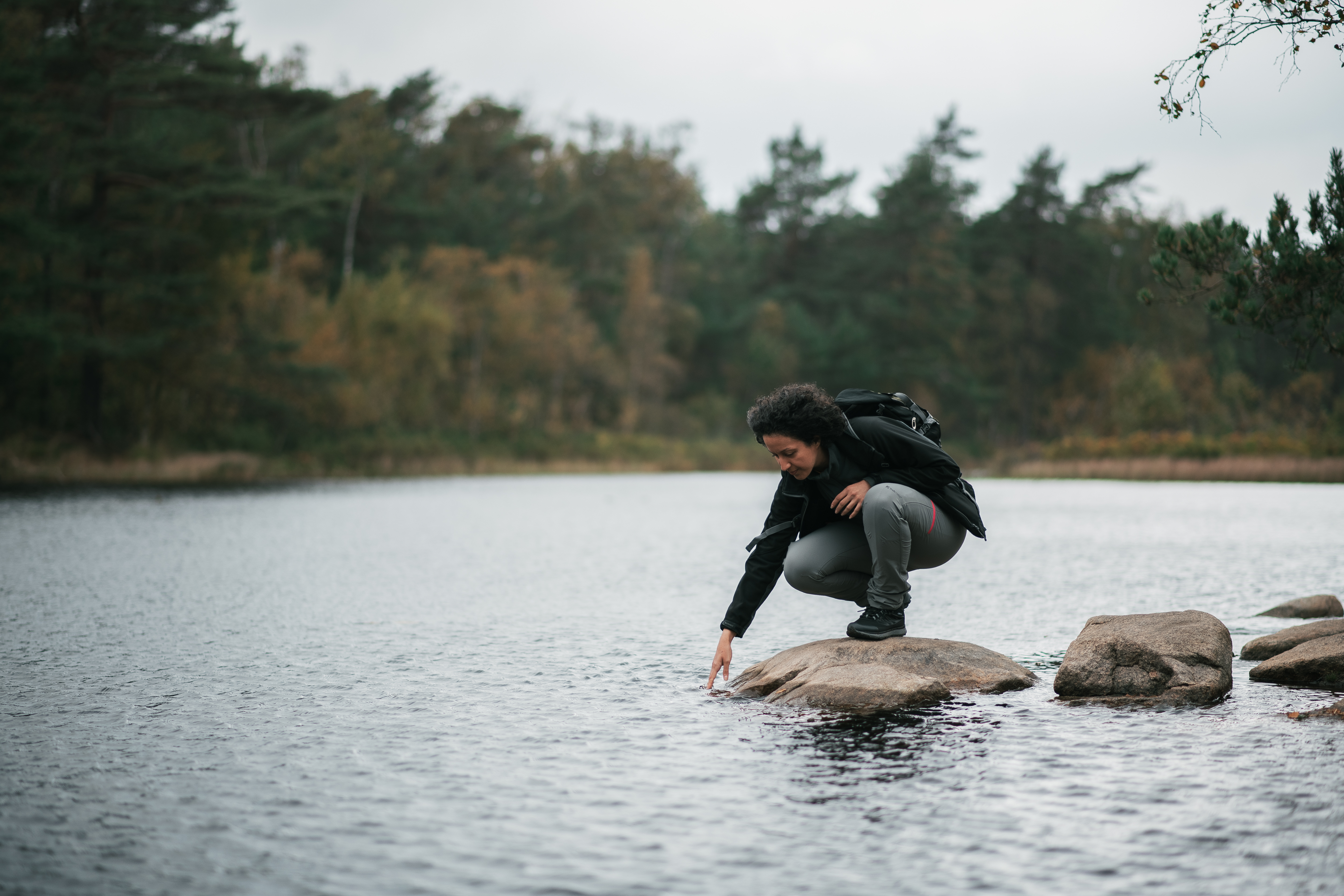Trees and water temperature part of Gothenburg’s first digitalisation trial

Digitalisation and coordination of large amounts of data are two of the main building blocks of the smart cities of the future. To pave the way for these building blocks, the City of Gothenburg will develop a so-called City Information Platform (CIP), with the city’s Sustainable Smart Parks test bed providing the first two pilot projects for the CIP: sensors that optimise tree irrigation and measure water temperatures for swimmers.
Until now, the City of Gothenburg hadn’t spent that much resources on digitalising the management of its green spaces. The work is currently cyclical, with irrigation and mowing done according to a set schedule. The Sustainable Smart Parks test bed, which is a joint project, will now attempt to digitalise the management of the city’s green spaces and implement a more needs-based way of working, with online sensors signalling when it is time to perform certain tasks. This needs-based way of working would save time and resources and have less of an impact on the environment, as machines wouldn’t have to be turned on quite as frequently, for example.
The data submitted by the sensors needs to be stored somewhere, and should be easy to retrieve in whichever format is necessary to perform certain tasks. Of course, other City of Gothenburg departments already collect data for their own purposes, often in similar ways. Having a shared, standardised data platform would optimise work flows and create an easily accessible databank, which would in turn facilitate innovation and the creation of new products or services.
“The goal is to establish a single service that simultaneously secures the ways in which we work, improves data security and offers a unified data infrastructure – a so-called City Information Platform (CIP). That CIP will make data available in a well-structured, user-friendly way to all departments of the City,” Noel Alldritt, Solutions Architect at the City’s Intraservice, explains.
The trial project will be based on the FIWARE platform, which was designed to manage IoT (Internet of Things) units and open/shared data in smart cities. FIWARE (which was funded by the EU) creates cloud services to securely share data and information in a standardised way. By partnering with other European cities in the EU ‘IRIS Smart Cities’ project, the City of Gothenburg helped prepare the ground for the CIP it is now developing.
Year-round measuring of water temperatures
Two Sustainable Smart Parks sub-projects will be piloted first. The first sub-project will place moisture sensors in the soil around newly planted trees, the idea being that needs-based irrigation will optimise tree management, as less water will be used and fewer trips will be required to check whether or not a tree needs to be watered. The sensors will signal when the soil is too dry and will hopefully also reveal which kinds of urban environment different species of trees prefer. In the future, that knowledge could help prevent trees from dying straight after they have been planted – currently a major problem. The soil-moisture sensors are battery-powered and communicate via the mobile data network through LTE-M.
The second sub-project will anchor sensors in the water at six different swimming sites (five lake sites and one ocean site) to regularly measure the water’s temperature for swimmers. Today, these readings happen manually, and they are only performed during the summer. But temperature information is of great public interest, and as ever more people take dips during the winter months as well, there’s been a growing demand for year-round measurements. Digitalising this service would alleviate the City’s staff of this burden and would require fewer trips out to the bathing sites, with reduced emissions as a result. The public could easily access the automatically updated information through the City’s Badplatsen app. This second type of sensor, which is also battery-powered, communicates wirelessly via LoRaWAN.
“We’re excited that Sustainable Smart Parks will be pioneering this city-wide solution in Gothenburg. The digital innovations we’re developing, both as part of the Sustainable Smart Parks test bed and for other projects, will all benefit from having access to a shared, standardised platform,” Evdoxia Kouraki, Project Manager at Johanneberg Science Park, comments.
Contact
Noel Alldritt, Solutions Architect, Intraservice, City of Gothenburg
E-mail: noel.alldritt@intraservice.goteborg.se
Telephone: +46 (0)79 063 02 81
Evdoxia Kouraki, Project Manager, Johanneberg Science Park
E-mail: evdoxia.kouraki@johannebergsciencepark.com
Telephone: +46 (0)70 932 92 17
Smart Sustainable Parks
Idrotts- och föreningsförvaltningen, Park- och naturförvaltningen, Lokalförvaltningen, Familjebostäder, Göteborgs Stads Leasing AB, Johanneberg Science Park, Sveriges lantbruksuniversitet, Decerno AB and Husqvarna AB.
The initial development of the test bed was funded by Vinnova up until August 2020, under the Utmaningsdriven innovation (UDI)programme. Sustainable Smart Parks will receive a further SEK 5 million in funding from Vinnova between 2020–2023 under the project Testbäddar för samhällets utmaningar.Partners: Park- och naturförvaltningen,Göteborgs Stads Leasing AB, Johanneberg Science Park, Sveriges lantbruksuniversitet) contribute with another SEK 5 million.
Read more: www.hallbarasmartaparker.com
